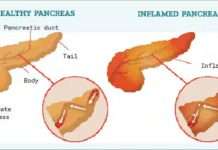(By Pharm. Ifeoma Anyanechi – Nworgu)
Are you an obessed person who has tried various means to lose weight, which have proved abortive? Then this article is for you. Read details below.
We are in the middle of an epidemic that may have profound health effects on our children. If the society does not act to implement preventive measures, the increase of obesity will not stop.
The tendency of some who have no problem with weight is to view overweight and obese people judgmentally and dismiss them as individuals with weak willpower and poor motivation. But is the problem that simple? Are obese people necessarily indolent individuals who avoid any physical exercise? Or, in many cases, are there other far reaching causes that are more difficult to control?
Heredity, Environment or both?
There has long been the debate pitching genetics against environment in the genesis of obesity. What is meant by genetics, in this context? Some hold to the theory that the human body naturally stores excess calories for possible future needs. The genetics of obesity has been studied for decades. Most research has now been done on human genes and obesity. Sophisticated techniques are being used to identify genes that predispose people to weight gain and to diseases like diabetes. In scientific balance, 25 to 40 per cent of the variability in population body weight can be explained by genes.
Given that obesity is usually blamed on personal failing, this percentage underscores the importance of biology; but still, 60 per cent or more of the influence can be attributed to the environment. This means that a major factor in obesity is still the person’s life style. Does the individual take in more calories than he or she expends each day? Are the wrong kinds of food being consumed on a regular basis? Is time set aside each day for moderate exercise?
The Mayo Clinic explains the cause of obesity in simple terms. “Genes may set the stage for overweight or obesity, but your body weight ultimately is determined by your diet and physical activity.”
Over the long term, eating excess calories, leading a sedentary lifestyle, or a combination of both, leads to obesity. Your heredity does not mean that you are destined to be fat. No matter what your genes say, it is ultimately your choice in nutrition and activity that will determine you weight.
The weight loss industry generates millions of dollars or naira, as desperate people seek to regain their former figure. Yet, what do experts say about these programms? Obesity is very difficult to treat, and most people who lose weight do not keep it off.
The most optimistic estimates are that 25 per cent lose weight and maintain the loss, often requiring many tries.
Dangers of obesity
Obesity can lead to severe health problems. Some doctors and pharmacists warn of the danger of type 2 diabetes for even young people who are obese. A pharmacist commented “We are seeing it all the time now and, believe me, it is frightening. He continued, “I tell obesity patients that I could take them up to the diabetes ward and show them their possible future. The blind, the amputees, the endless number of people who are completely deformed because of types 2 diabetes and who are obese. What is one contributing factor? They can afford super-sized buggers and fries, and so they get them. There is no one out there telling them it is wrong; certainly not the fast food companies, and frankly, certainly not most physicians who still are not trained in nutrition.”
It has recently become more fashionable, and even politically correct, to believe that being overweight is just a normal and acceptable part of modern life.
This is truly an amazing public relations feat accomplished by the economic interests that thrive on fattening us.
Experts say that those who are “pear shaped” – carry extra fat at the hips – may be healthier than those who are “apple shaped” – having fat distributed around the abdominal organs – especially if the waist exceeds 89 to 101 cm. Why? Because fat in your abdomen increases your risk of high blood pressure, coronary artery disease, diabetes, stroke and certain types of cancer. If you have pear shape large hips, thighs and buttocks, your health risks are as high.”
So, what is the solution for the millions of adults and children worldwide who are overweight and in danger of serious health complications? Is there an effective remedy?
Diane, who is a dietician, and Jade, who is a nurse, both working with overweight and obese patients, were in agreement that certain diets that concentrate on eliminating carbohydrate and increasing the intake of protein (meats) can lead to weight loss. However, they say that, over the long haul, there can be negative secondary effects. This is confirmed by a medical chart called maintaining a healthy weight. It states that low carbohydrate diets, especially if undertaken without medical supervision, can be dangerous. If continued, they are designed to causes rag rid weight loss by promoting an undesirably high concentration of ketone bodies (a byproduct of fat metabolism). If you are considering a low carbohydrate diet, be sure to consult a doctor or pharmacist.
If it is your goal to lose weight, do not despair. Weight control is not impossible, nor does it need to mean deprivation or a boring repetitious diet. With conscious effort and creativity, most people can successfully control their weight for the long term, with an enjoyable but reasonable diet and daily exercise. A longer, healthier life is definitely worth the effort.
How important is exercise?
Other than not smoking, exercise is the simple best thing you can do to get healthy or stay healthy and keep chronic diseases at bay.
How often should one exercise? What are the benefits of physical effort? Some experts advise that daily exercise, if only for 30 minutes, can be very beneficial. But it is suggested that even exercising three times a week can help one to avoid serious problems in the future. Exercise burns calories, and the predominant question for someone who is trying to lose weight should be: “Each day, am I burning up more calories than I am taking in?” If the equation is reversed, then you will surely gain weight. So, walk or cycle, instead of riding in a vehicle. Climb stairs, instead of taking the elevator. Exercise burns calories.
For many people, walking is an excellent alternative to other types of physical activity because it does not require any special equipment; can be done any time and any place; and is generally quite safe – especially brisk walking, not just taking a stroll. Thirty minutes of physical activity every day, if possible, is good.
Is surgery the best solution?
In an effort to lose weight and to prevent future weight gain, some severely obese patients have followed the advice of bariatric (obesity) specialists, who recommend various surgical procedures. Who might qualify for these surgical solutions?
The writer of the book, “Mayo Clinic on Health Weight”, suggests that your doctor may consider surgery, if your body mass index is above 40, an indication that you are severely obese.
Surgery for obesity is generally suggested or recommended only for people between the ages of 18 and 65 with a body mass index (BMI) over 40, whose obesity is creating a serious medical risk.
What are some of these surgical procedures?
– Small bowel bypass
– Gastric partitioning
– Gastroplasty
– Gastric bypass
This later procedure involves stapling across the top of the stomach, leaving a small pouch that holds only about 14 grams of food. The small intestine is then cut and attached to this pouch. Thus, most of the stomach is bypassed, as well as the duodenum.
Is liposuction the answer to obesity?
What is Liposuction?
One dictionary definition is cosmetic surgical procedure in which excess fatty tissue is removed from a specific area of the body, such as the thighs or abdomen, by means of suction. It is also called suction lipectomy.
The Mayo Clinic on Healthy Weight says that liposuction is cosmetic surgery; it is not weight loss plan. Fat cells are sucked out of the body by means of a narrow tube inserted under the skin. Several kilograms can be removed in one session, however the surgery is not a treatment for obesity.
Is it a safe procedure?
People with certain weight- related medical conditions, including diabetes and heart disease, are at increased ask of complications from liposuction.
To lose weight you may try these:
Be aware of the calories in what you are eating and drinking.
Drinking can be a major source of calories, especially sweetened juices. Alcoholic drinks are also high in calories. And beware of those widely advertised soft drinks; check the calories count on the label. You might be shocked.
– Avoid temptation of chocolates, chips, cookies; if they are at hand, you will inevitable eat them. Replace them with low calories snacks, such as apples, carrots, whole grain wafers.
– Have snacks, such as an appetiser, before eating a meal; it will take the edge off your appetite and may induce you to eat less.
– Do not eat everything put infront of you. Be selective. Reject what you know will give you too many calories.
– Slow down, why hurry? Enjoy your meal by noticing what you are eating.
– The colours, flavours, the interaction of foods listen to the body’s signals that say, “I am full, I don’t need anymore”.
– Stop eating before you feel full.
– Restaurants in some countries are notorious for serving excessive portions; leave half of your entrée behind or share the plate with someone else.
– Desserts are not essential to complete a meal. It is better to finish off with fruits or another low calorie item.
– Food manufacturers want you to eat more, profit is their bottom line.
– They will try to exploit your weakness. Do not be taken in by their clever advertising and pretty pictures; you can say no.
What is BMI?
What does it tell you? BMI (Body Mass Index) is a height to weight ratio that can help to define whether a person is overweight or is already obese. According to the Mayo Clinic, a BMI rating of 18.5 to 24.9 is considered the healthiest. If your BMI is between 25 and 29.9, then you are overweight. Anything over a BMI of 30 is viewed as obese.
To calculate your BMI, take your weight in kilograms, divide it by your height in metres, and then divide the result by your height in metres again.
Example:
Weight = 90kg
Height = 1.8 metres
Your BMI = 28
(90/1.8/1.8) = 28
What is calorie?
It is a standard measurement of heat energy. Thus, when we perspire we use up calories or heat energy. A calorie is the amount of heat that it takes to raise the temperature of one kilogram of water by exactly one degree centigrade.
Each person’s daily calories or energy needs are different, depending on such factors as height, weight, age and activity level.
You are sedentary if you:
– Spend most of your day sitting, watching TV or at a desk or in a vehicle, in other words not moving.
– Seldom walk more than 90 metres.
– Have a job that keeps you inactive.
– Do not take between 20 and 30 minutes to exercise at least once a week.














Just desire to say your article is as surprising.
The clearness for your publish is just excellent and that i can suppose you’re an expert on this subject.
Fine with your permission allow me to snatch your feed
to stay up to date with coming near near post. Thank you 1,000,000 and please carry on the rewarding
work.
Feel free to visit my web site: LonnyACrocco
buying tadalafil online safely – tadalafil 20 mg tadalafil generic online
You actually help it become seem so simple with your presentation but
I find this topic to be really something which I do believe I might never
understand. It seems too complex and very broad for me personally.
I’m looking forward for your upcoming post, I will try to get the
hang of it!
Here is my blog post :: JudeLMabee
It’s a shame you don’t have a donate button! I’d definitely donate to this superb blog!
I suppose right now i’ll settle for bookmarking and adding your RSS feed to my Google account.
I anticipate fresh updates and may focus on this
website with my Facebook group. Chat soon!
Here is my page: BlakeWHaskin
Hey! Do you know if they make any plugins to protect against hackers?
I’m kinda paranoid about losing everything I’ve worked hard on. Any suggestions?
Have a look at my website zipper wallet insert
I am curious to find out what blog system you are utilizing?
I’m experiencing some small security issues with my latest site and I’d want to find some thing safe.
Have you got any solutions?
My site: happy planner
Great article, totally what I needed.
My website – Ketone CLeanse reviews
Hello to every single one, it’s actually a nice for me to pay a quick visit this web page, it consists
of precious Information.
Feel free to visit my web site: ketone advanced weight loss, http://kimolisa.blogspot.com.br/2011/10/spinning.html,